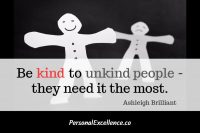This is Tip #2 of the Million Dollar Tip Series. If you have financial goals in life, you’ll find this series a perfect resource to achieve them.

One of the fastest way to earn money is to leverage on the skills you already have at the moment.
In Million Dollar Tip #1, we learned that money is value. Value is defined as something of importance to others. When you make a positive difference to others’ lives, you deliver value. And when you deliver value, you establish a channel for earning money in the process.
Using your current skills is the best way to start making that difference in others’ lives. Reasons being:
- For the skills you already have, there are thousands of people out there who do not have these skills and can greatly benefit from your expertise. These people may either want you to teach them the skill or want to engage your service on them.
- There’s always downtime involved when cultivating a new skill. Since you’ve already cultivated these skills, you can utilize them right away with little to no downtime. While you’re earning money from these skills, you can be simultaneously cultivating your desired new skill (the one you want to earn money via in the long-run), till you reach a point of mastery – after which you can then switch to making money via your new skill.
Some examples of this in action:
Example #1: Tuition
When I was in university, one of the things I did was offer tuition on the side.
For a good portion of my university years, I was tutoring students, usually 3 at any point in time. These were primary/secondary/junior college students. I would tutor them on subjects I studied in the past, such as Maths, Physics, Chemistry, History and English.
Since I had learned the subjects before, it was easy for me to tutor them. All I had to do was to spend some time reacquainting myself with the topics before each session, and I was good to go. Then during the session, I would revise the topics with them, while offering them the best tips I had on performing well in the exams.
As a university student, and for the minimal work involved, it was a good income source. Every month I earned about $350-400+ USD for my tutoring work. Not too bad for a few hours of work every week. Plus it was also very gratifying to mentor the students and see them do better, week after week. In a way I felt like their big sister, looking out for them and guiding them in their studies and life.
Skills I leveraged on: Knowledge of academic subjects which I learned before
Example #2: Web and Graphic design
When I was in secondary school, one of my hobbies was web design. There were various web sites which I set up in my free time. These websites were on topics of my interest, such as desktop enhancements (winamp skins, ICQ skins, wallpapers), animes, and so on. I would create new content every day, build my traffic, and network with other people in the community.
Since web development is integral to graphic design, I also picked up graphic designing skills in the process. To create better looking websites and web content, I dabbled with advance graphic editors. In the beginning, I used Paint Shop Pro (seen as a lower tier alternative to Photoshop) and used it to develop my materials. It was a matter of time before I transitioned to Photoshop and became proficient with it.
This went on for a good number of years, between 1999-2002. For the whole 3-4 years, I was intensely involved in my site development. I read a lot of web and graphic tutorials online. In the process, I deeply honed my web and graphic design skills. Every day, I gained crucial experience points and leveled up in my work.
By the end of the 2002, I had a good level of knowledge and direct hands-on experience with web and graphic design. When I went to university (2003), I pulled the plug on the sites because I was no longer as passionate about my web projects. I wanted to move on to something new in life.
While I had ended my web projects, I never saw it as a waste of my efforts in those 4 years. I had walked away with a good level of web and graphic designing skills, cultivated during those period.
When I was in university, I decided to put those skills to good use – I started my own web/graphic design business, while I was a freshman. While I was studying, I was simultaneously building my business via spreading the word, networking and liaising with potential clients.
By the time I was in year 2, I was handling numerous design projects, including a global PR agency and a Fortune 500 company. My projects would lead on to follow-up engagements due to the clients’ satisfaction with the work I had produced. I was doing well enough to consider making it a full-time business after I graduated from school.
As it would turn out, I didn’t continue on with my business after my second year as I had secured a highly coveted job offer with a top company by then, and I wanted to take a break from work in my final year. But during the period when I was running my business, I was actively leveraging on my existing (design) skills, adding value to my clients and earning money for my work.
Skills I leveraged on: Web and Graphic designing skills I picked up when I was in secondary school
Example #3: Blogging
As all of you know, my life passion and work is in personal development and helping others grow. If there’s just 1 thing I want to do for the rest of my life, it is this.
While my core work is in personal development, I’ve cultivated strong skills in blogging and online marketing in the process of pursuing my purpose, since my #1 medium of choice to achieve my life message is through blogging. From running Personal Excellence in the past few years, I’ve learned immensely on what it takes to develop a successful, top blog – from blogging fundamentals, creating high value content, marketing, traffic generation, community building, and so on.
These are skills which are invaluable to others, such as people who want to start their blogs, or corporations who want to develop web campaigns.
Hence last year, I decided to leverage on my latent skills in blogging. I started off by adding blog coaching to my life coaching service, which promptly attracted a new client pool. I also accepted social media and blogging related engagements from corporations.
Most recently (last month in fact), I kicked off a Blogging Intensive Bootcamp, which is a 4-week intensive bootcamp to equip beginner/intermediate bloggers with blogging fundamentals that’ll set their blogs up for future online success. Over 80 participants signed up, all ready to unleash their blogging prowess! In fact, I had to close the sign-ups on the third day of registration to cap the total number of participants and maintain the quality of the interaction.
After 4 weeks of intensive theory and hands-on tasks, the bootcamp ended (a few days ago) and was a huge success. Many of the members walked away with crucial, invaluable knowledge that’ll help them create their top blogs in months and years to come. At the moment, we’re already discussing about potential follow-up bootcamps on advanced blogging topics that’ll help them in their blogging journeys ahead.
As you can see, I did not specially learn about blog development just to conduct this course. Blogging is a skill I already have, and I had created the course as a way to leverage on my current skill and add value to others who could benefit from my knowledge.
Skills I leveraged on: Blogging and web development skills which I had cultivated in the course of running my personal development business
Leverage on Your Current Skill to Add Value to Others
There are many other examples I can cite, but I think you get the point by now. In the examples I raised above, I did not spend additional time to cultivate these skills. They are all skills I picked up at some point in the past, and I simply leveraged on those skills to add value to the people who could benefit from them. In doing so, I created immediate revenue opportunities.
Likewise, you can also do the same by identifying your current skill sets and creating opportunities to add value to others.
Watch-outs
There are a couple of watch-outs when applying this tip.
#1. Evaluate against your long-term path
Sometimes, you’ll find your current skills a mismatch with the path you want to take in the long-term.
For example, perhaps you have expertise in physics but you want to be a life coach in the future. Or you’ve an expertise in law but you want to be a writer next time. If so, leverage on your current skills as an intermediary source of income as you create a long-term career plan as a life coach. Make sure you don’t get embroiled into this current path. It provides a ready source of income but is not a long-term solution.
For example, while I gave tuition when I was schooling, I had no plans to continue this in the long-term. I knew it was just a temporary stint. Same for when I was running my web/graphic design business – When I was given the opportunity to work in a Fortune 100 company, I decided that I would put my design business on hold and pursue it next time if I ever wanted to (as it turned out, both paths eventually became obsolete).
With my blogging course, I had tremendous joy and fun working with the participants on their blogs throughout the 4-week course, but at the same time I was aware that my core work/passion is personal development. I may dedicate time every now and then to run blog development courses, because I’m passionate about blogging too, but it’s not in my intention to develop a blogging community like what I’ve done for Personal Excellence in the area of personal development.
Always evaluate what you’re doing with your current skills against your long-term goals. Is it helping you reach them? Is it in alignment with your long-term vision? If not, then live up to your commitments and do what you need to do within the situation, but create an exit plan when it’s over. Don’t get stuck developing yourself in that direction. If it’s not what you want to do in the long-run, you’re not going to be happy doing it moving forward. It’ll only feel more and more like an obligation that’ll eat you away on the inside.
#2. Never stop learning and growing
Another watch-out is not to fall into stagnation mode. It’s easy for one to rely on one’s current skills, earn income off them, and stagnate in the process.
I’ve seen this happen to some people – For example, those who quit their jobs to become full-time private tutors, in the quest for a relaxing and free lifestyle. Or those who quit their corporate jobs to become trainers – which is fine in itself, except that they only ever train in the same topics, with the same materials, deal with the same clients, and earn the same income every year, and never expand their scope nor business. While they’re seen as people with more knowledge (i.e. tutor, teacher, trainer = someone dispensing knowledge to others), in reality they’re not learning or growing at all. I’m not sure if it’s such a great exemplification to their students and participants.
While you’re earning from your current skills, make sure you’re constantly learning and growing. Keep upgrading yourself, whether via leveling up in your current skill, or by picking up a new skill. If you ever feel you’re stagnating, that’s a sign you’re stunting your growth. It’s then time to set new goals, identify new role models, read new books/blogs, consult people you respect and learn something new.
Your Task: Identify Current Skills To Leverage
Your task for today is to think about what your current skills are, and how to leverage them in your financial goals.
Think over the following questions, and down your answers in your notebook:
- Identify Your Current Skills: What are your current skills? List all of them.
- What are your areas of expertise? What are you good at?
- What do you do in your pastime? These are skills – be it dancing, painting, pottery, cooking, fashion, fitness / weight loss, photography, and so on.
- What are you knowledgeable about?
- What do you do at work / school?
- Leverage on Your Skills: How can you leverage on these skills to generate money?
- Can you offer consultations?
- Write an ebook on the topic?
- Teach someone who wants to learn that skill?
- Provide a service using your skills? (like how I provided web/graphic design services)
- …etc. The possibilities are endless!
Remember, all these skills you’ve listed above are your assets. They may seem second nature to you, but they certainly aren’t to many people out there. There are the people who don’t have those skills and can benefit greatly from your knowledge!
Proceed to Tip #3: Address a Need
This is Tip #2 of the Million Dollar Tip Series. If you have financial goals in life, you’ll find this series a perfect resource to achieve them.
(Image: Girl)









 Thanks for reading. If you like my free articles, join my private email list and get my latest updates and articles sent right to your inbox.
Thanks for reading. If you like my free articles, join my private email list and get my latest updates and articles sent right to your inbox.